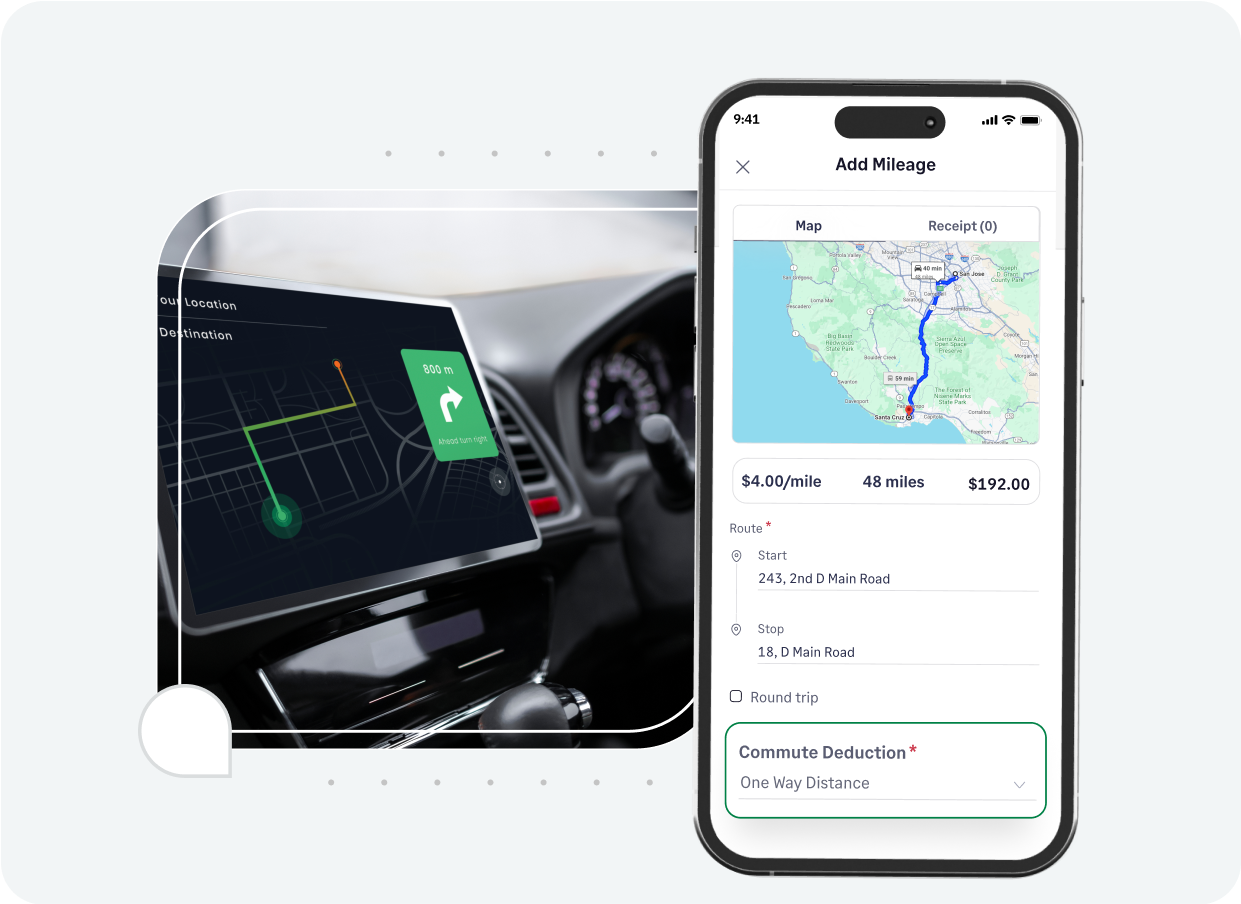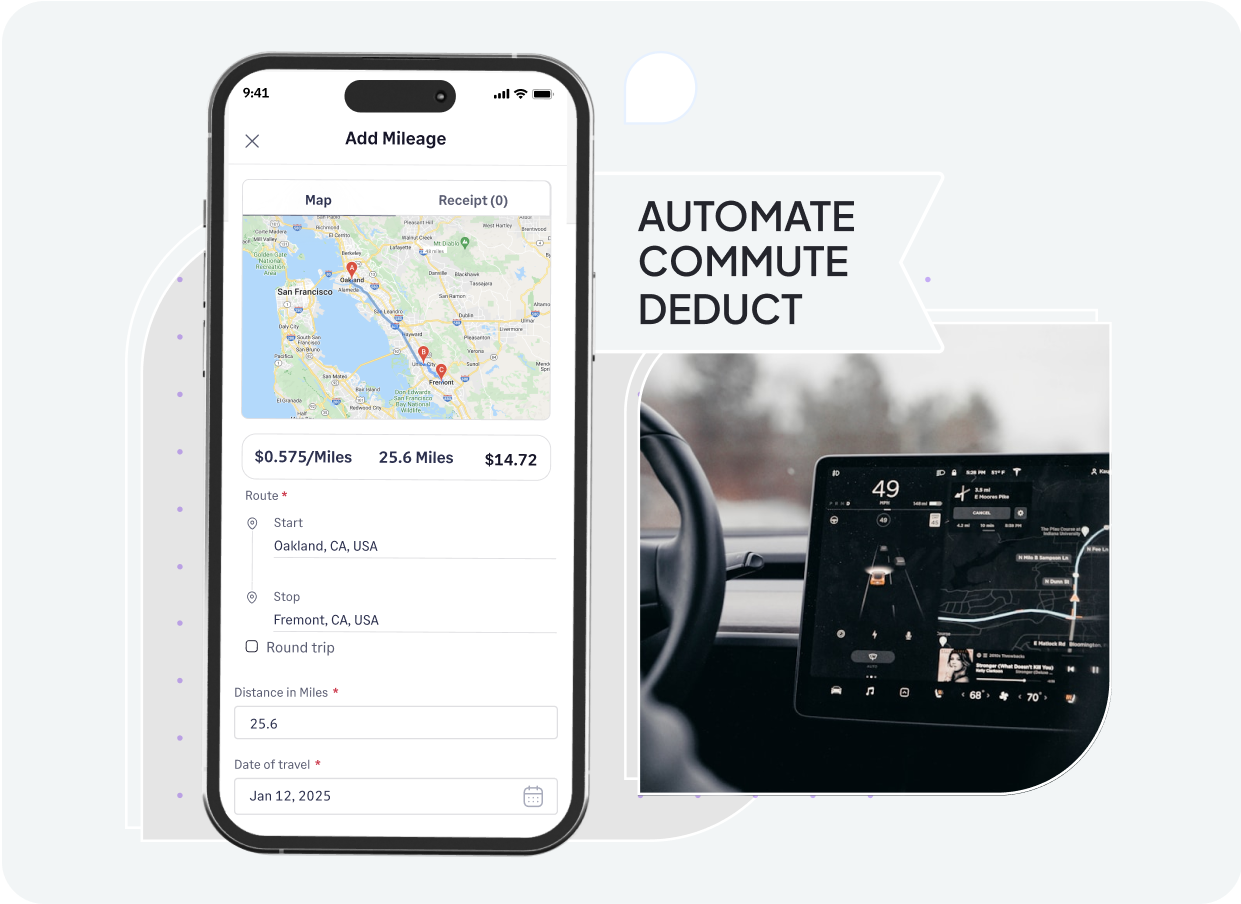In South Dakota, where the cost of doing business often involves travel across its expansive landscapes, understanding mileage reimbursement is a practical concern for employers and employees.
While the state sets clear guidelines for its public sector and workers' compensation, private businesses typically look to federal standards, all while navigating South Dakota's own annually adjusted minimum wage.
The primary reference point for calculating mileage reimbursement nationwide is the rate published by the Internal Revenue Service (IRS). For the calendar year 2025, the IRS has announced the standard mileage rate for the business use of a personal vehicle at 70 cents per mile. This is an increase from the 67 cents per mile rate effective in 2024.
Private sector employers in South Dakota are not specifically mandated by state law to use this IRS rate for all general business travel. However, many choose to align with this federal standard for several key reasons:
- It provides a clear, consistent, and nationally understood basis for reimbursement.
- When payments are made through an accountable plan at or below the IRS rate, they are generally not considered taxable income to the employee and are deductible as a business expense for the employer.
As of January 1, 2025, the key IRS standard mileage rates are:
- 70 cents per mile for business use of a vehicle.
- 21 cents per mile for medical or moving purposes (note: the deduction for moving expenses is currently limited to active-duty members of the U.S. Armed Forces).
- 14 cents per mile driven in service of charitable organizations.
Other relevant rates in South Dakota include:
- South Dakota State Employee Rate: As per South Dakota Codified Law (SDCL) 3-9-1, the mileage rate for state employees using a privately owned automobile for state business is set by the State Board of Finance but shall not be less than the standard rate allowed by the IRS. Therefore, for 2025, this rate will be at least 70 cents per mile.
- Workers' Compensation Medical Travel: Injured employees in South Dakota are entitled to reimbursement for all reasonable and necessary travel expenses, including mileage, to obtain medical care for work-related injuries, as stated in SDCL 62-8-4. This rate is the same as that allowed for state employees, meaning it will also be at least 70 cents per mile for 2025.
For historical context, here are the IRS standard business mileage rates from recent years:
South Dakota Mileage Reimbursement Calculator
Quickly estimate your mileage reimbursement with our user-friendly South Dakota Mileage Reimbursement Calculator.
How to Use the Calculator:
- Select the correct tax year: Choose the year for your calculation (e.g., 2025, 2024), as IRS rates are subject to change.
- Input your business miles: Enter the total miles driven for business purposes using your personal vehicle.
- Calculate your reimbursement: The calculator will apply the official IRS standard mileage rate for the chosen year to display your estimated reimbursement.
This tool offers a straightforward estimate based on federal standard rates, valuable for managing travel expenses in South Dakota.
Calculate
Results
Some Important South Dakota Mileage Reimbursement Laws
While South Dakota does not have a specific statute requiring all private employers to reimburse mileage for general business use, several state laws and overarching federal regulations influence employer responsibilities:
1. South Dakota Minimum Wage Law
South Dakota's minimum wage is $11.50 per hour as of January 1, 2025, and is subject to annual adjustments based on the CPI. This is a critical consideration.
Employers must ensure that any unreimbursed work-related expenses, such as mileage, do not effectively reduce an employee's actual earnings below this state minimum for the hours worked.
The tipped minimum wage is $5.75 per hour, provided tips ensure the employee reaches the standard minimum wage.
2. Workers' Compensation (SDCL 62-8-1, 62-8-4)
State law mandates that employers provide necessary medical care for work-related injuries. This includes reimbursing injured employees for all reasonable and necessary travel expenses, including mileage, to obtain such medical care.
The mileage rate for this aligns with the state employee rate, which cannot be less than the IRS standard rate.
3. Absence of General Private Employer Mandate on Rate
Beyond ensuring minimum wage compliance and workers' compensation obligations, South Dakota law does not generally dictate a specific mileage reimbursement rate or requirement for private employers. Therefore, company policy often guides these practices.
4. State Employee Travel Regulations (SDCL 3-9-1)
South Dakota law explicitly ties the mileage reimbursement rate for its state employees to the IRS standard rate, ensuring it is at least that amount. This sets a benchmark within the state for fair reimbursement.
South Dakota Mileage Reimbursement Law vs. Federal Law
In South Dakota, the legal framework for mileage reimbursement is a blend of state-level wage standards and specific provisions, with federal law and IRS guidelines playing a significant role.
Fair Labor Standards Act (FLSA)
The FLSA is the principal federal law in this area. It stipulates that an employee’s earnings must not fall below the federal minimum wage ($7.25 per hour) after deducting any unreimbursed business expenses that primarily benefit the employer, such as mileage.
If these costs effectively push an employee's pay below this federal baseline, the employer must cover the difference.
South Dakota's State Laws
The state laws offer additional or aligning considerations:
- The state's minimum wage is $11.50 per hour (for 2025, with annual CPI adjustments), which is higher than the federal rate. This means South Dakota employers must primarily ensure that unreimbursed driving expenses do not violate this higher state minimum wage.
- South Dakota law directly mandates that mileage reimbursement for workers' compensation medical travel and for state employee travel must be at least the current IRS standard rate.
IRS Regulations
The IRS regulations which establish the standard mileage rates (e.g., 70 cents per mile for business in 2025), are set for federal income tax purposes. These regulations do not legally compel employers to reimburse at that specific figure.
However, their practical importance is substantial. If a South Dakota employer uses an accountable plan and reimburses at or below these IRS rates, the reimbursement is generally non-taxable to the employee and is a deductible expense for the business.
This tax efficiency and the state's own adoption of the IRS rate for public employees and workers' comp make the IRS rates a very common and advisable standard.
In summary, South Dakota's state minimum wage is a key factor ensuring employees are not unfairly impacted by business mileage costs. State law also directly ties public sector and workers' compensation reimbursement to the IRS standard.
While the FLSA provides a federal wage floor, South Dakota's own laws often set a higher or more specific standard. IRS guidelines then offer a widely adopted, tax-efficient method for calculating general business reimbursements.
How Sage Expense Management (formerly Fyle) can Automate Mileage Tracking
Take the complexity out of mileage reimbursement in South Dakota with Sage Expense Management's expense and mileage tracking automation. Our platform offers businesses an efficient way to manage travel expenses, ensuring accuracy and saving valuable time.
- GPS-enabled mileage logs: Captures precise travel distances automatically using Google Maps, ensuring every trip is accurately recorded.
- Flexible rate application: Easily supports IRS standards, South Dakota's state-aligned rates, or your unique company figures, applied instantly.
- Clear commute management: Defines home and work locations to help accurately identify and deduct non-reimbursable personal commute travel.
- Automated recurring journey claims: Allows employees to set up frequent routes once for automatic creation of future mileage submissions.
- Built-in policy and compliance checks: Embeds your company's expense rules to proactively flag any claims that deviate from guidelines.
- Seamless integration with accounting systems: Connects directly with popular software like QuickBooks, Xero, and NetSuite, for effortless data synchronization.
- Prompt employee reimbursements (US only): Offers fast and direct ACH payment for approved mileage claims, enhancing employee satisfaction.
Sage Expense Management helps South Dakota businesses streamline their mileage tracking, improve compliance, and provide a better experience for their teams.


































